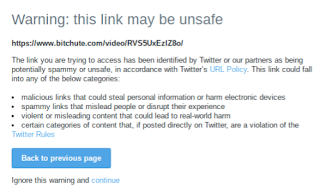Customer eXperience (CX) is more than customer service centers or doing a customer satisfaction survey. Having the best price or product is great, but lots of other companies can claim the same. It is a strategy to become more successful by making business about every interaction the customer has with your product, service, brand, and company. The goal is to make every interaction pleasant for the customer so they feel good and return to buy more.
- "61% of consumers say their priorities keep changing as a result of everything going on in the world. As a result, the way they interact with brands is evolving, and so too is the idea of customer experience.." from Accenture Insights and Research
The customer experience starts with marketing materials that attract their attention. Marketing can be digital or print. The old marketing rule of seeing your brand at least three times before they buy my still ring true, but the methods for getting that attention have changed. Businesses can not rely on only one marketing effort that has worked I the past, they must use multiple channels to not only communicate with current customers but to reach potential new customers.
- On the Adobe for Business blog post explaining customer experience management, they explain "For today’s customers, their experience matters as much as your offerings. In fact, 86% of consumers say they’re willing to pay more to receive a superior customer experience. And 64% are more likely to recommend your brand if they have a great experience, leading to increased referral business and higher return on investment."
The customer experience means more than getting them into a physical store, to attend a sales meeting, or buy from a website. It consistently delivering a brand experience that makes customers want to come back. Loyal customers continue to drive business revenue only as long as they feel they are getting more than just a regular product or one-time service for their money. Remember they can always go elsewhere for a similar product or service if they are not getting a satisfactory experience with a company and brand,
- "80% of customers value their experience with a company as much as its products or services." is just one of the many statistics presented in the Customer Onboarding blog by OnRamp.
Communication is important to any customer who has a problem anywhere during the sales cycle or after delivery. If the customer reports a problem, they must be kept in the loop on how it is being solved. The quickest way to loose a customer is for them to have a bad experience and believe no one is listening to their complaints. When considering word-of-mouth, a really great or a slightly bad experience is often communicated faster than a good one - especially with social media making it easier to complain. Communication with the customer is also important when considering improving a process that involves them or developing a new product that replaces a popular version. So consider asking for feedback from those that order often to make sure the proposed updtes still offers them the value they expect.
According to Hubspot blog, a provider or customer satisfacton surveys and map templates to plan the customer journey "Excellent customer experience leads to loyal customers, who are likely to sing your praises via word-of-mouth marketing, which 92% of people trust more than advertising."
If the goal of great customer experiences is met. It may lead to customers giving great reviews and encouraging others to buy from the company as well. Word-of-mouth marketing then expands from social networking through company resources to trusted individuals sharing their experience with others who might be interested in what you offer. Sales go up, profits go up, and companies stay successful. Customers should always be treated like they are kings and queens, because without them there are no sales nor profits.






























 This work is licensed under a
This work is licensed under a